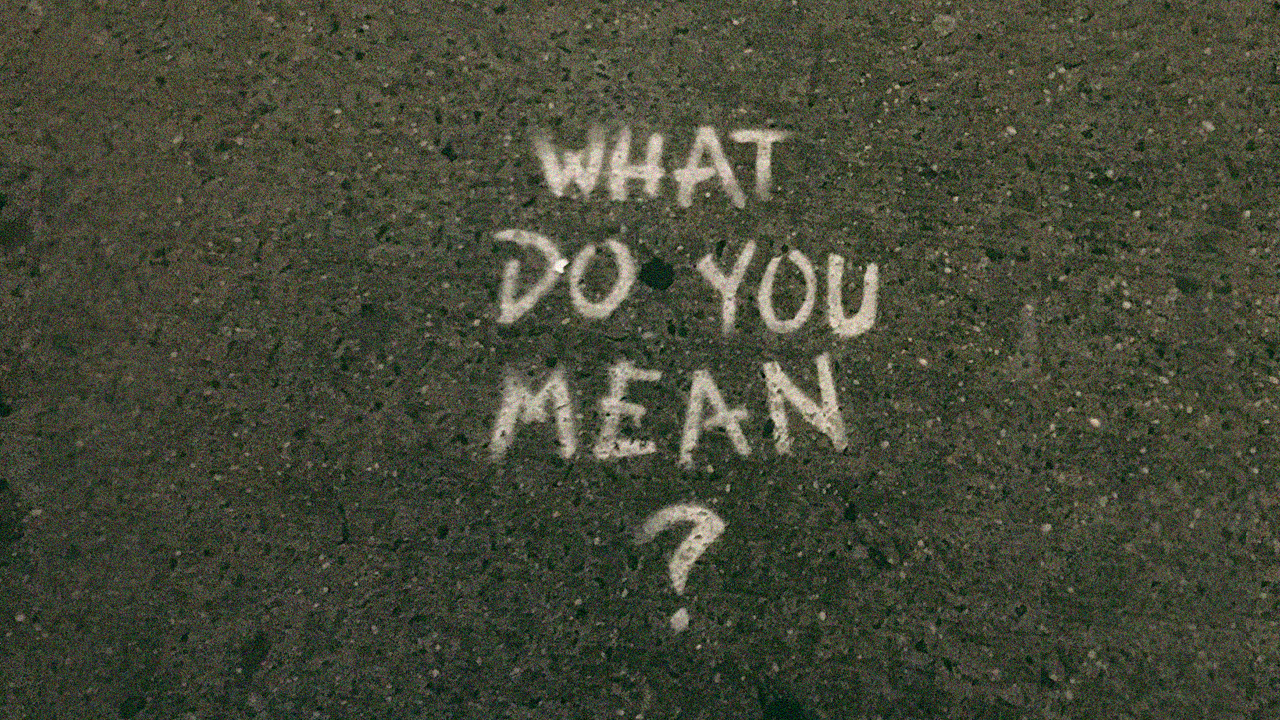
First Person
Took my teenage son out to get bagels and cream cheese today.
Between mouthfuls I asked about the new boy who came over last night with the usual neighborhood friends to hang in the back room. Turns out he’s another teen who came from Germany to stay with our next door neighbors over the summer. I asked if he was an exchange student: didn’t know about the exchange part; he’s just staying for five weeks. Ok, so how’s his English? Pretty good but heavy accent. Predictable. Is he fitting in with the group? Not really; he’s not shy, just kind of rude and swears a lot–and he’s an atheist.
He said the last word with emphasis, as if it either explained everything or as he would’ve said he was a Nepalese throat singer or Rastafarian or human amphibian or something else he’s never encountered in Orange County, CA. What can I say, my son is a preacher’s kid in a fairly hermetic county and has certain experiential deficits.
I smiled and asked if the boy’s family was atheistic, and he said yes, and I said that was becoming common in Europe, that most kids grow up believing what their schools and parents and family believe, and that he still had plenty of time to figure out what he wanted to believe for himself. I told my son that he himself probably believed in God now mostly because we do, but there would come a time in his life when that would not be enough. To believe what others believe only because they say it loudly or longly enough, to have not actually lived and experienced and become convinced of what we are convinced of will only take us so far. In the end, it’s all first person or nothing; hearsay—accepting second or third person tellings—will never get us through life’s muggings. And then I had to explain mid-life crises as crises of meaning and purpose and tell a bit of my story and other things that make teenage eyes roll back.
But he came around to ask why atheism was common in Europe, and I told him that they were on a curve that was ahead of ours here in America. I gave him the dos millennial flyover of how western Europe struggled under a thousand years of Roman Catholic rule that became so politicized and corrupt as to spark the Protestant Reformation that became so intellectual and legal that by the time two world wars leveled most of the continent and unleashed horrors on a scale previously uncontemplated, there was practically no faith left in Church and not much trust in God.
I told him that new ideas called post-modern and new scientific discoveries called quantum were finding ways to explain the world without God, that old and new ideas about the role of government were finding ways to explain society without Church, and that Church–facing its own mid-life crisis–had lost its connection with deeper Spirit, with its own existential meaning and purpose…leaving it too confused to balance all that unGod weight.
I didn’t actually say it that way, but he got the gist and astutely wanted to know that if Europe was only ahead of us on the curve, were we going to end up post church, post Christian, and post theistic as well? He didn’t actually say it that way either, but I got the gist, and said yes, but… Yes, the same secular forces (I defined that for him) are at work here as in Europe, and the big church denominations here had become less and less distinguishable from those secular forces and more irrelevant to spiritual lives, and if nothing altered that course then yes, we would soon look like Europe.
But…there is a growing movement here, especially among young people who are sincerely searching for an authentic spiritual experience that could change everything. They know that the emperor has no clothes and are not shy about saying so–that much of Church ritual and belief has become part of the problem…or at least the unthinking, uncritical practice of it that becomes indistinguishable from superstition. They seem to instinctively know that the only way back is first person: avoiding doctrinal hearsay through a willingness to exchange old ritual forms for the intimate, personal experience of a living God who convinces and empowers the communal expression of spiritual experience that is all religion was ever supposed to be in the first place.
I told my son that when enough of us have asked the hard questions, lived our faith first person, become convinced of what we are convinced of–when we see that conviction mirrored in the experiences expressed in our scriptures and the lives of those among us who consistently leave people better than they found them, then we move out on another curve, one that will part ways with Europe’s and our own apparent trajectories.
Ever since the last of the eyewitnesses to the crucifixion died, the Church has seen itself as the leader of its people and gateway to the things of God. I told my son that the time had come for people to find gate and way themselves, then lead their Church back to relevance and connection to the God it was entrusted to point toward, but never obscure.
I think I told him all that. If not, I should have.
Sorry, the comment form is closed at this time.






Bradford Johnson
Good morning, Dave. I am interested in your thoughts about this video. I have recently begun listening to Amir. He has a lot of insight about the EU and Europe’s falling into a tailspin. I don’t mean to use your platform to push a video off onto you. At the same time, after I read your message I thought of Amir and his message. And he speak of Europe like I’ve never heard before.
Love you Dave!
Brad
https://www.youtube.com/watch?v=c6EXwzi5lZw
Would you mind listening? I really is a interesting video.
Dave Brisbin
Hey Brad, sorry for the delay getting back. The link you sent for some reason won’t send. Could you send me link again, maybe by email? I’m at dave@theeffect. Talk soon.
Shellagh
Dave…
I wish someone would spoken to me like that when I was his age.
Dave Brisbin
Oh, and I as well. Though don’t know how much I would have heard then or how much my son heard then for that matter. At least we’re ready to hear now, yes?
Sherry
As I’ve said many times before, you have the ability to make stories you tell so relatable and yearning for more. You are the perfect fit for the delicate task of explaining God word. I couldn’t be more pleased!
Dave Brisbin
Sorry for delay on responses–still getting used to this platform. Thanks for the kind words, Sherry! Keep reading, and we’ll keep talking…